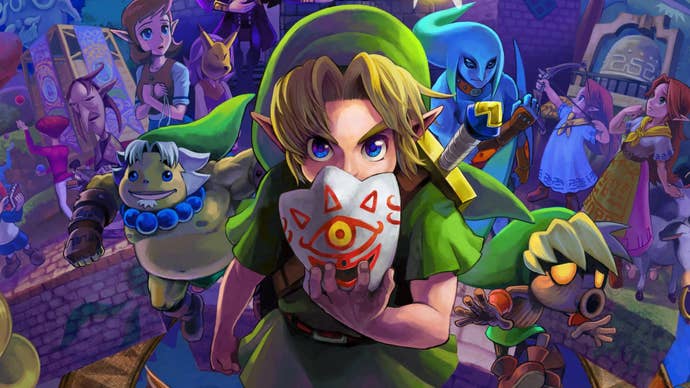A few minor chords have a major effect.
The Legend of Zelda: Majora’s Maskis a game that has stuck with me for a long time.
I’ve never entirely known why.

I’m enveloped in an atmosphere - a feeling of some kind.
Majora’s Mask picks up the story of Link after the events of Ocarina of Time.
After giving chase, Link is transformed into the body of a Deku.

To put it another way, things don’t quite make sense in Majora’s Mask.
When it comes to folklore, after all, you never really know where the truth fully lies.
Of course it is.

The Legend of Zelda’s music has always told a story.
Majora’s Mask’s Song of Healing is a much more complicated affair.
Despite its dark tone and atmosphere, there’s something relaxing at the core of this song.
Likely a product of its time, it starts with a drone from an electronic organ.
This follows the central melody but eventually clashes with it, outstaying its welcome.
In Majora’s Mask, this is the music used to return you from your Deku form.
For this very reason, the opening portion of Majora’s Mask can be hard to get used to.
As a kid, I was unsettled by the game, as I was unsettled by the music.
With time, Majora’s Mask has slowly drawn me back in.
Bucking this trend, Nintendo’s sequel actually feels more idiosyncratic.
It’s darker in tone and shorter in length.
In a sense, the Song of Healing is the exact same thing.
Its dark tones and even darker subject matter can be abrasive on first listen.
Many may hate the melancholic melodrama of Majora’s Mask.
As well as telling its own story, the Song of Healing plays into the narrative well.
The game makes an important point in how the song works: it doesn’t fix everything.
you could’t use it to restore the land or stop the approaching moon.
But you’re free to take those first steps.
Earlier on, I compared this song to folklore and this becomes clearer the more you listen.
Its loneliness is contrasted by the millions of people who have been touched by it.
Though it is titled after healing, its sadness is representative of the contrasts we need in life.
Our happiness is often symbolic of the absence of sadness.
Our healing is a sign of the damage we have sustained.